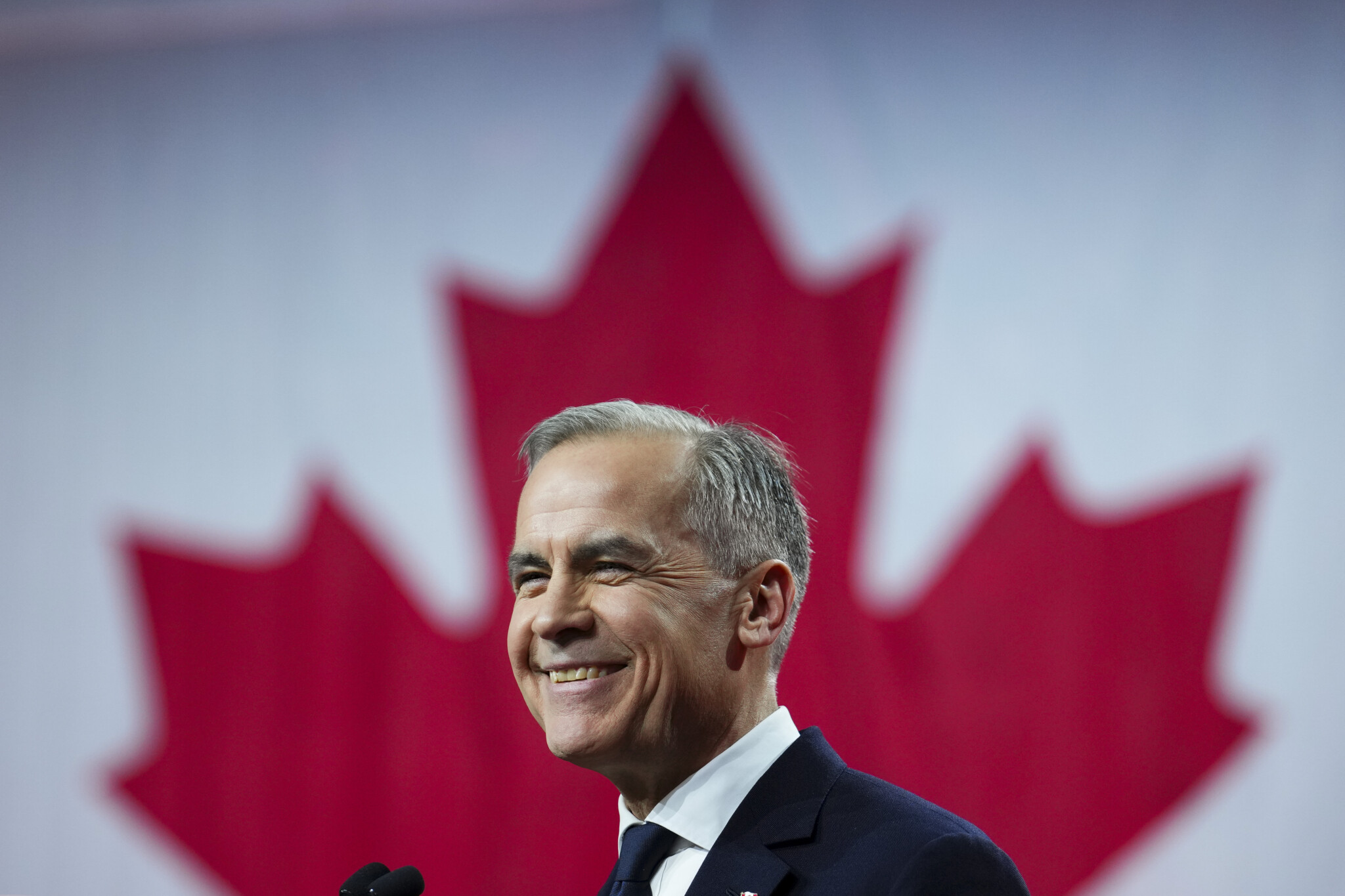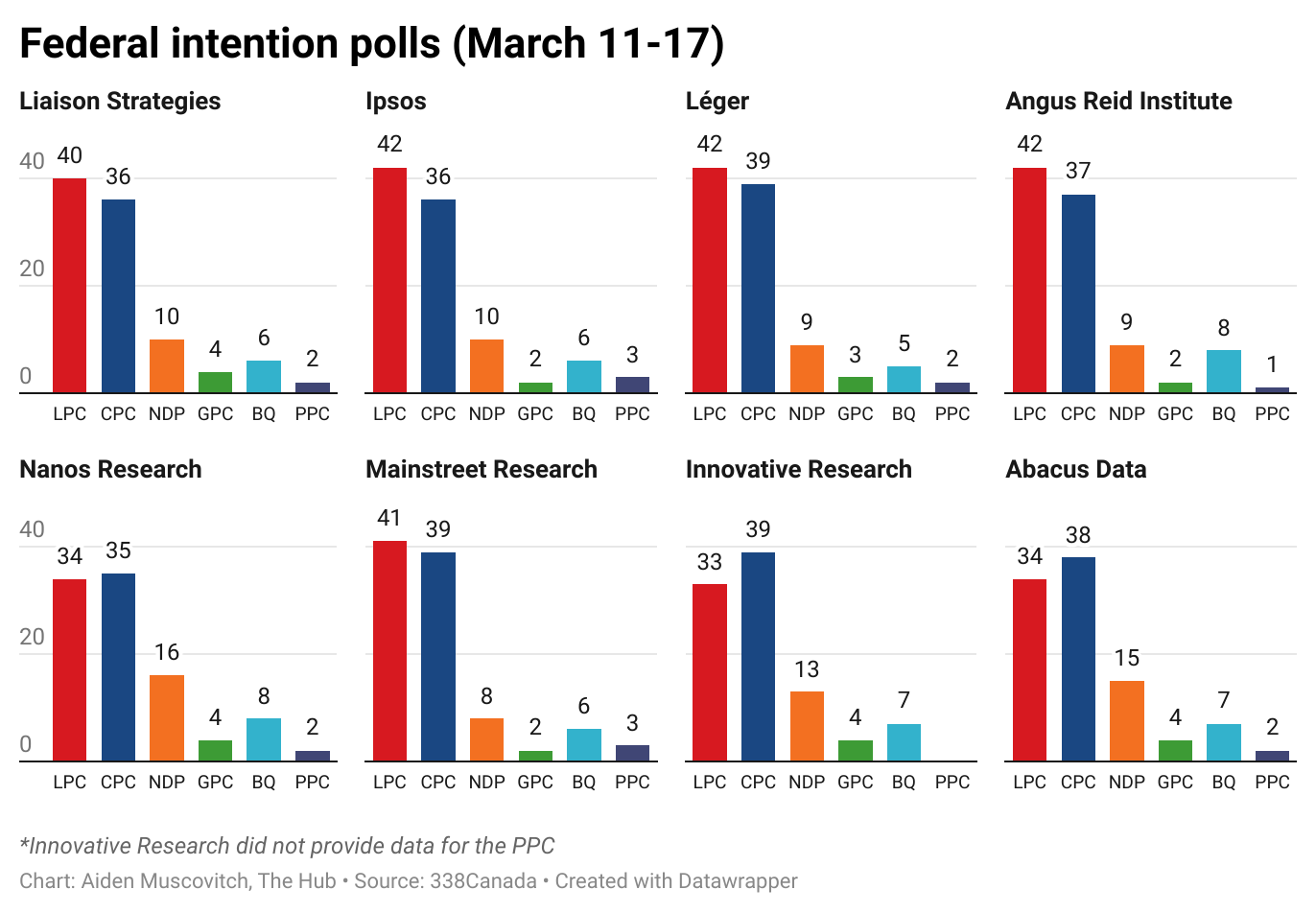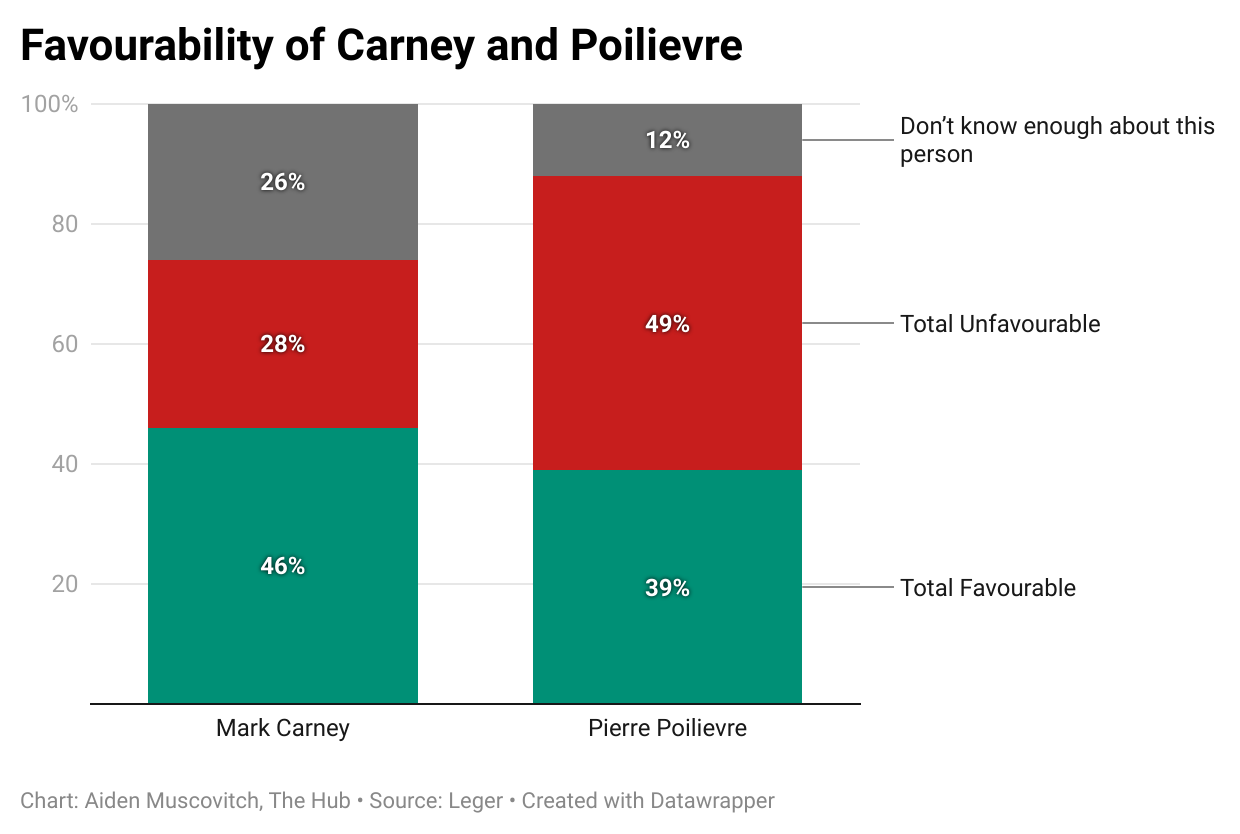This is The Week in Polling, your Saturday dose of interesting numbers from top pollsters in Canada and around the world, curated by The Hub. Here’s what we’re looking at this week.
Many major pollsters now have the Liberals ahead of the Conservatives
Only days away from a likely historic federal election, voting intention polls show mixed results, though most have the Liberals ahead of the Conservatives, as momentum behind Prime Minister Mark Carney builds.
Liaison Strategies placed the Liberals ahead at 40 percent, with the Conservatives at 36 percent, and NDP at 10 percent. Ipsos and Léger both gave the Liberals their largest lead at 42 percent, ahead of the Conservatives at 36 percent and 39 percent, respectively. Angus Reid mirrored Ipsos and Léger’s Liberal support at 42 percent but had the Conservatives slightly lower at 37 percent. Nanos Research showed the NDP’s highest polling numbers at 16 percent and had the Conservatives narrowly ahead at 35 percent compared to the Liberals at 34 percent.
Mainstreet Research placed the Liberals slightly ahead with 41 percent against the Conservatives at 39 percent, while the NDP was lowest here at just 8 percent. Innovative Research presented the Conservatives with their largest lead, at 39 percent, compared to the Liberals at 33 percent and NDP at 13 percent. Not too far off, Abacus Data placed the Conservatives in front at 38 percent, the Liberals at 34 percent, and the NDP relatively strong at 15 percent. The Abacus Data poll has the Liberals reaching their highest vote share since August 2021.
According to poll aggregator 338 Canada, the polling average among all major pollsters in Canada, including but not limited to those mentioned above, have the Liberals ahead at 39 percent, the Conservatives not far behind at 37 percent, and the NDP at a weak 11 percent of the national vote share.
As the election looms, the topic of which leader is best suited to deal with U.S. President Donald Trump remains key. Trump recently said in an interview with Fox News that he didn’t care if his rhetoric led to a Liberal win, saying he would prefer to deal with a Liberal government over a Conservative one.
“The Conservative that’s running is stupidly no friend of mine. I don’t know him but he said negative things,” he explained. “I think it’s easier to deal actually with a Liberal.”
Pierre Poilievre responded, claiming Trump wants Canada to have “weak, compromised and conflicted leadership…That’s why he endorsed Mark Carney.” Carney has yet to respond to Trump’s comments.
More than a third of Canadians said managing Trump is the most important issue to influence their vote (ahead of the economy), according to a recent Nanos survey.
Canadians could be headed to the polls on April 28th or May 5th.
Along with a lead in vote intention, Leger shows Carney is viewed more favourably in the eyes of Canadians than Poilievre. Despite 26 percent of Canadians indicating they do not know enough about Carney to pass judgement, he is 7 percent more favourable and 21 percent less unfavourable than Poilievre. Only 12 percent of Canadians do not know enough about Poilievre to decide whether they find him favourable or unfavourable.
Carney is also seen as the party leader most able to get Canada a good deal when working with Trump, as reported by Ipsos.
Nevertheless, some experts have been quick to remind the public that this election will be Carney’s first foray into partisan politics. Last week, Ipsos CEO Darrell Bricker told The Hub‘s editor at large Sean Speer that despite this sudden lead, Carney has not mastered the role of politician.
“He’s not somebody who can speak effectively in sound bites. He’s not somebody who can whip up a crowd,” Bricker said. “He’s not somebody who exudes a level of personal charisma and warmth the way that Justin Trudeau did.”











